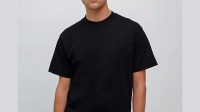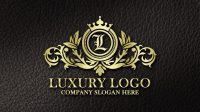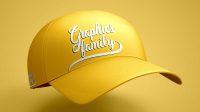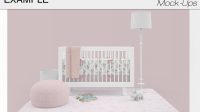
Mockup Glass: The Ultimate Guide to Its Types, Applications, and Benefits
Introduction
Mockup glass, also known as tempered glass, is a versatile and highly durable type of glass that finds extensive applications in various industries. Its unique properties, such as its strength, clarity, and ability to withstand extreme temperatures, make it an ideal choice for a wide range of purposes, from architectural glazing to automotive windshields. In this comprehensive guide, we will delve into the world of mockup glass, exploring its different types, applications, advantages, and essential considerations.
Understanding the Types of Mockup Glass
Mockup glass encompass a range of specialized types, each tailored to specific applications. Let’s examine the key types and their distinctive characteristics:
-
Float Glass: The most common type, float glass is manufactured by floating molten glass on a bed of molten tin, resulting in a smooth, distortion-free surface.
-
Reflective Glass: Designed to control light and heat by reflecting sunlight, reflective glass is coated with a metallic or ceramic layer, making it ideal for energy-efficient buildings.
-
Low-E Glass: Low-emissivity (Low-E) glass features a transparent coating that allows visible light to pass through while reducing heat transfer, enhancing insulation and energy efficiency.
-
Tinted Glass: Incorporating metallic oxides or pigments, tinted glass offers a range of colors to suit aesthetic preferences and reduce solar heat gain.
-
Laminated Glass: Consisting of two or more glass layers bonded together with an interlayer, laminated glass provides enhanced safety and security, preventing shattering into sharp fragments upon impact.
-
Patterned Glass: Featuring decorative patterns embossed or etched onto the surface, patterned glass provides privacy and aesthetic appeal.
-
Wired Glass: Embedded with a wire mesh, wired glass offers fire resistance and prevents the spread of flames in case of a fire.
Applications of Mockup Glass
The versatility of mockup glass extends to a multitude of applications across various industries:
-
Architectural Glazing: Mockup glass is widely used in architectural facades, windows, doors, and skylights due to its strength, durability, and ability to maximize natural light.
-
Automotive Windshields: Mockup glass serves as the primary material for automotive windshields, providing exceptional clarity, strength, and safety to protect drivers and passengers.
-
Furniture and Decor: Mockup glass finds applications in furniture, such as tabletops, shelves, and display cases, adding an elegant and modern touch to interiors.
-
Medical Equipment: Mockup glass is employed in medical equipment like laboratory glassware, surgical instruments, and medical devices due to its resistance to chemicals and high temperatures.
-
Electronic Devices: Mockup glass is used in electronic devices like smartphone screens, laptop displays, and touchscreens, offering scratch resistance and durability.
Benefits of Mockup Glass
Mockup glass offers a myriad of advantages that contribute to its widespread adoption:
-
Strength and Durability: Mockup glass is exceptionally strong and durable, making it resistant to impacts, scratches, and extreme temperatures.
-
Clarity and Transparency: It provides excellent clarity and transparency, allowing for unobstructed views and maximum natural light transmission.
-
Safety: Mockup glass shatters into small, harmless fragments upon impact, minimizing the risk of injury. Laminated glass further enhances safety by preventing complete glass breakage.
-
Energy Efficiency: Low-E glass and reflective glass reduce heat transfer, resulting in improved energy efficiency and reduced energy consumption in buildings.
-
Aesthetics: Mockup glass adds a modern and elegant touch to various applications, with options for tinted, patterned, and reflective finishes.
-
Versatility: Mockup glass is highly versatile, adaptable to a wide range of applications, from architectural glazing to medical equipment.
Considerations for Using Mockup Glass
To ensure optimal performance and safety, several considerations should be taken into account when using mockup glass:
-
Type Selection: Choosing the appropriate type of mockup glass is crucial, considering the specific application and desired properties, such as strength, clarity, or energy efficiency.
-
Installation: Proper installation is essential for ensuring the integrity and safety of mockup glass. It should be handled and installed by trained professionals.
-
Maintenance: Regular cleaning and maintenance are necessary to maintain the clarity and appearance of mockup glass, especially in outdoor applications.
-
Safety Precautions: Mockup glass can break under certain circumstances. It is important to follow safety precautions, wear appropriate protective gear, and avoid applying excessive force or using sharp objects near glass surfaces.
Frequently Asked Questions (FAQ) about Mockup Glass
Q: What is the difference between mockup glass and regular glass?
A: Mockup glass, also known as tempered glass, undergoes a specific heat treatment process that makes it stronger, more durable, and safer than regular glass.
Q: Is mockup glass safe?
A: Yes, mockup glass is safe when properly installed and maintained. It shatters into small, harmless fragments upon impact, minimizing the risk of injury.
Q: Can mockup glass be used outdoors?
A: Yes, mockup glass is suitable for outdoor applications, such as architectural facades and windows. It is resistant to weather conditions and UV rays.
Q: How do I clean mockup glass?
A: Use a mild glass cleaner and a soft, lint-free cloth to clean mockup glass. Avoid using abrasive cleaners or sharp objects, as they can scratch the surface.
Q: What are the environmental benefits of mockup glass?
A: Low-E and reflective mockup glass can contribute to energy efficiency in buildings, reducing energy consumption and greenhouse gas emissions.
Conclusion
Mockup glass stands as a versatile and valuable material with diverse applications across industries. Its strength, clarity, safety, energy efficiency, and aesthetic appeal make it a compelling choice for architectural glazing, automotive windshields, furniture, and various other applications. By understanding the different types, applications, benefits, and considerations associated with mockup glass, you can make informed decisions and harness its potential to enhance safety, aesthetics, and functionality.





